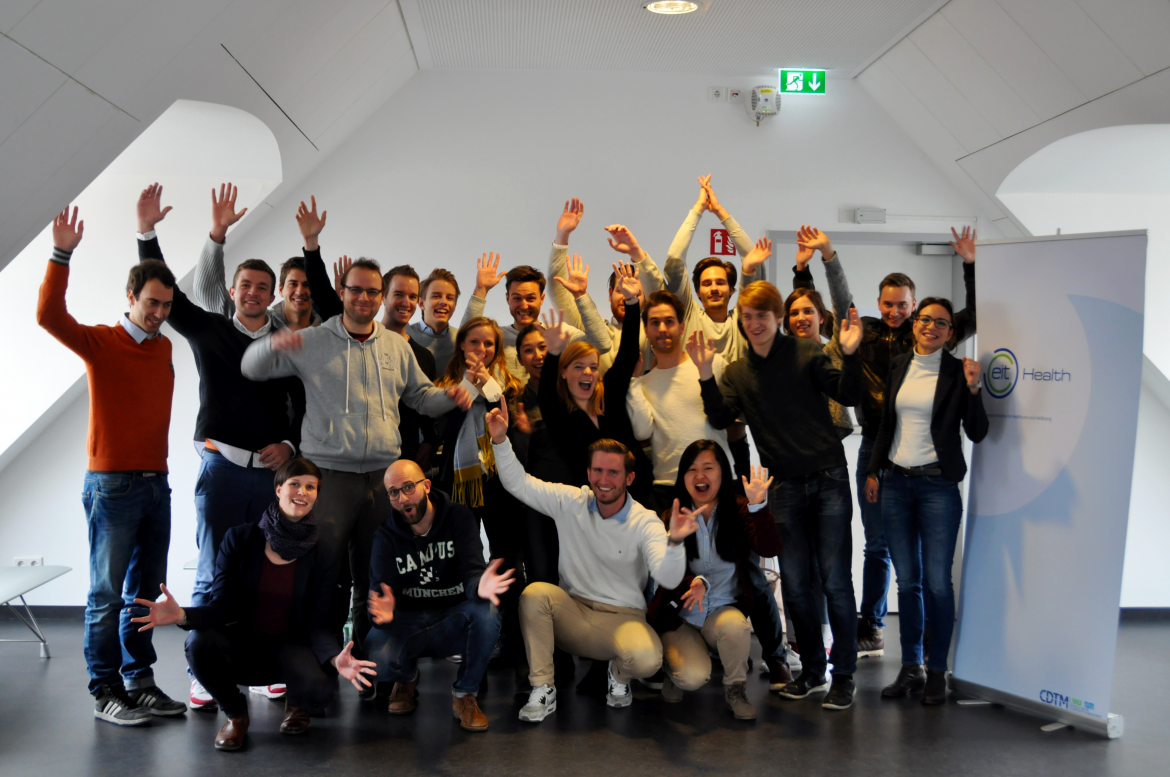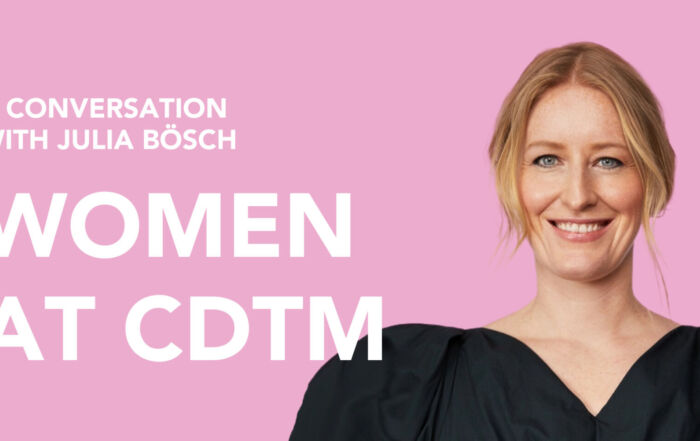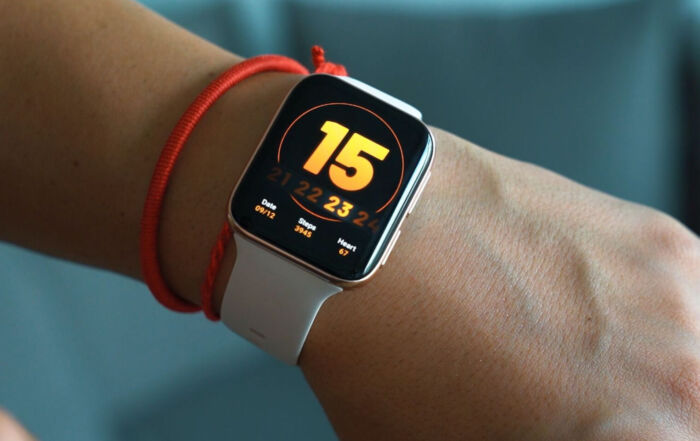Demystifying eHealth by supporting Munich healthcare startups
22 students from 12 disciplines, two real-world problems, input from 5 eHealth experts, 4 days of hard work and intense discussions. All this came down to two final presentations at the end of the Think Health workshop at the CDTM last week. What remains are two happy entrepreneurs from MediKura and MealoMi and the realization that eHealth is, despite regulatory hurdles, currently one of the most promising areas for founding a startup.
As a starter: insights and individual coaching from eHealth experts
On Friday, eHealth experts provided an overview on the topic. Students got first-hand information from the CDTM Alumna Katharina Jünger, Founder of Teleclinic, how to start an eHealth company. She particularly highlighted the importance of regulations and data security in the area of telemedicine. Philip Stadtmann, Member of the Board at Guano, provided insights on the perspective of a Venture Capitalist on the eHealth market. And, lastly, Eva-Maria Gottmann from the EIT Health Accelerator explained how the program supports young startup founders that lack experience in healthcare. Throughout the whole course, the two student teams received continuous mentoring from Ulrich Herrenweger and Patrick Müller (both Hubert Burda Media) on how to build digital products from scratch.
Main course: 22 students solve challenges for MealoMi and MediKura
Together with EIT Health, the CDTM has invited two startups to present challenges they are currently working on. Both MealoMi and MediKura are Munich-based and were co-founded by CDTM Alumni in the last 12 months.
Developing Killer-Features for MealoMi
MealoMi, founded by Patrick Christ, Florian Ettlinger und Sebastian Schlecht, is applying machine learning algorithms to derive nutritional information from smartphone pictures of meals. The team faces the student’s challenge to develop the right features to increase the initial user base and to ensure a high retention rate in a mobile application. The student team came up with four features that they presented in form of a mock-up: The Nutrition-Counter, which helps the user to track their food intake in order to stick to a diet goal. The Recipe-Suggestor, which gives recommendation on what to cook in order to stay in line with the diet goal. The Fridge-Scanner, which gives advice on what to cook based on leftovers. And a Photo-Filter, a tool to share information of your intakes in a picture with your friends on different social media channels.
Conceptualize a platform for reporting drug side-effects for MediKura
MediKura is a patient focused reporting platform for drug side-effects. Inspired by a painful personal experience, the founder Friderike Bruchmann aims to increase the efficiency of reporting drug side-effects. On the one hand, the platform simplifies the process for the drug user and on the other hand it establishes a valuable database for regulators and pharma companies. The task of the second student team was to create a web application which meets the drug user’s needs, the needs of pharma companies as well as the regulations regarding eHealth applications. At the end, the team successfully came up with a market analysis, legal compliance information and a prototype of the platform to provide personalized medical information for the patients.
Dessert is on: now is the right time to found a healthcare startup
Driven by an aging population and an increase of chronic diseases, the need for new digital solutions in healthcare is urgent. Since the eHealth market is one of Germany’s largest and most promising growing markets with an estimated growth of 21,9% until 2020, it also seems like an attractive opportunity for entrepreneurs.* It is, however, not only the monetary aspect that attracts startups, but rather the major impact on society that motivates entrepreneurs to tackle healthcare challenges. Despite the great need for innovation, the healthcare sector entails some challenges, mainly due to regulations and the multitude of stakeholders and disciplines involved. To overcome these challenges was the major goal of the elective course Think Health offered by CDTM as part of the EIT Health network. EIT Health aims at improving the quality of life and healthcare across Europe by promoting entrepreneurship and innovation in healthy living and active aging. It brings together research institutes, companies, and other organizations and offers valuable support for entrepreneurs. Find out more on https://eithealth.eu/
Sources:
*https://www.statista.com/outlook/312/137/ehealth/germany#
Author: Minh Le and Manuel Grossmann







